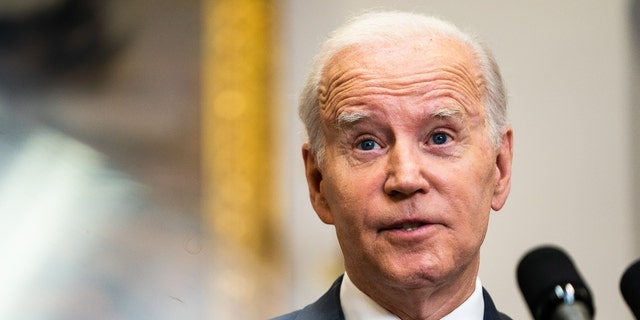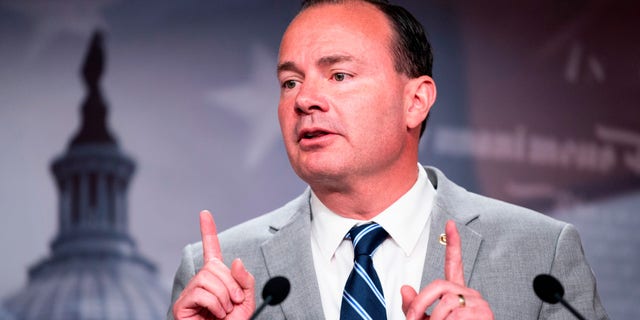EXCLUSIVE – A bipartisan group of lawmakers on Capitol Hill are introducing a bill that would curb the expanded powers the White House is granted under the National Emergencies Act and give more of it to Congress.
Rep. Chip Roy, R-Texas, and Sen. Mike Lee, R-Utah, have garnered more than a dozen fellow Republicans and Democrats in both chambers to support the “Assuring that Robust, Thorough, and Informed Congressional Leadership is Exercised Over National Emergencies” or the “ARTICLE ONE Act,” – a measure they say will restore the constitutional order of separation of powers, and checks and balances granted in Article 1 of the U.S. Constitution.
The National Emergencies Act of 1976 is the current federal law that lays out the powers and responsibilities of the executive branch in declared emergencies.
“The presidency was never meant to have monarchical power over the American people; that’s why the framers of our constitution designed a system of checks and balances,” Roy said in an exclusive statement to Fox News Digital.
“For far too long, however, presidents from both sides of the aisle have ignored Congress and undermined the constitutional order by abusing the virtually unchecked power to declare national emergencies,” he said.”
FORMER ATTORNEY IN BARR’S DOJ WINS AWARD FOR WORK USED TO FIGHT BIDEN’S EXECUTIVE OVERREACH
“The Article One Act reasserts Congress’ authority over emergency declarations and rebalances federal power between the legislative and executive branches as the framers of the Constitution intended for it,” Roy added.
The National Emergencies Act of 1976 has granted the president broad powers to respond to national emergencies.
A national emergency can activate more than 100 new powers, including the power to seize private property, control domestic transportation and spend money in absence of congressional approval, according to the Congressional Research Service.
Under current law, the president can unilaterally extend national emergencies. Congress may pass a bill to end that emergency, but unless passed by a veto-proof majority there’s little incentive for a president to sign such a bill. There are currently 41 outstanding national emergencies. Congress has not voted to authorize any of them and the oldest continually in effect was put in place by President Jimmy Carter in 1979.

GOP TAKES AIM AT BUREAUCRACY REGULATING AMERICAN LIFE: ‘DEMOCRACY DIES IN A CUBICLE’
“This kind of lawmaking-by-proclamation runs directly counter to the vision of our Founders and undermines the safeguards protecting our freedom. It’s high time that Congress reclaimed its legislative power and restored constitutional balance to our Republic,” Lee told Fox News Digital.
The ARTICLE ONE Act would require congressional approval for a national emergency to continue beyond the original 30-days, which the lawmakers say is plenty of time for the president to respond to an emergency in absence of congressional input and consent.

WHITE HOUSE SLAMMED FOR FOREIGN STUDENT VISA PROGRAM AS GOP LAWMAKERS PUSH SUPREME COURT TO STEP IN
Per the measure, a joint resolution of approval would extend the emergency for one year.
Senate cosponsors for the ARTICLE ONE Act include Richard Blumenthal, D-Conn.; Mike Braun, R-Ind.; Mike Crapo, R-Idaho; Jim Risch, R-Idaho; and Chris Murphy, D-Conn.
House supporters include Steve Cohen, D-Tenn.; Josh Brecheen, R-Okla.; Paul Gosar, R-Ariz.; Harriet Hageman, R-Wy.; Kevin Kiley, R-Calif.; Andy Ogles, R-Tenn.; Michael Cloud, R-La.; Ralph Norman, R-S.C.; Clay Higgins, R-La.; Andy Biggs, R-Ariz.; Mike Gallagher, R-Wis.; Scott Perry, R-Penn.; Dina Titus, D-Nevada; Nancy Mace, R-S.C.; and Eleanor Holmes Norton, the Democratic nonvoting delegate from Washington, D.C.
Read the full article here